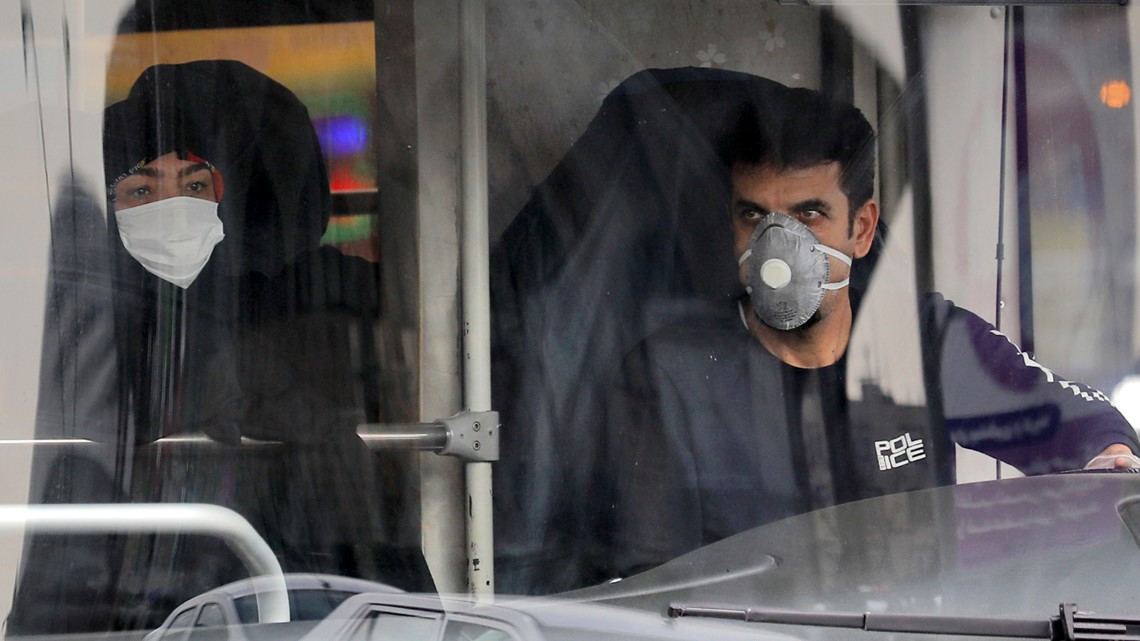TEHRAN PROVINCE, Iran — Iranian health authorities on Sunday reported two more deaths from the new virus that emerged in China, bringing the death toll in Iran to eight.
Iran's health minister says that travel from China first brought the new virus to the Middle Eastern country, amid concerns that coronavirus clusters in Iran, as well as in Italy and South Korea, could signal a serious new stage in its global spread.
Iran reported its first case of the virus last Wednesday. Iran has confirmed 43 cases in total in at least four different cities, including the capital, Tehran, so far.
The Iranian health minister told state TV that one Iranian who died from the virus was a merchant who regularly shuttled between the two countries using indirect flights in recent weeks after Iran stopped direct passenger flights to China.


Following the increased number of Iranian deaths, Turkey's health minister says their border with Iran will be closed due to the number of coronavirus cases in its eastern neighbor. The minister says flights from Iran would also cease Sunday evening. Turkey has not recorded any cases of coronavirus.
Speaking in Istanbul, Turkey's health minister says that “By effective early measures, we have been able to keep this disease and epidemic away from our country." But he says the jump in cases in Iran alarmed the Turkish government. He said travel from Turkey to Iran would still continue.
The first few deaths came as Iranians voted in nationwide parliamentary elections on Friday.
Many voters went to the polls wearing face masks, and some pharmacies ran out of masks and hand sanitizer amid the election-day rush. The turnout was seen as a key measure of support for Iran's leadership as sanctions weigh on the economy and isolate the country diplomatically.
In the coronavirus outbreak, it’s not the rising numbers that are worrying experts: It's that they can't trace where some disease clusters started. When new clusters emerge, health officials try to find the first patient, the person who sparked it. But when they can't, it's a signal the disease might be spreading too widely for tried-and-true public health steps to stamp it out.
The World Health Organization insists the worst-case isn't here yet. But it also points to spikes in cases in Iran and South Korea to warn that time may be running out to contain the virus.

